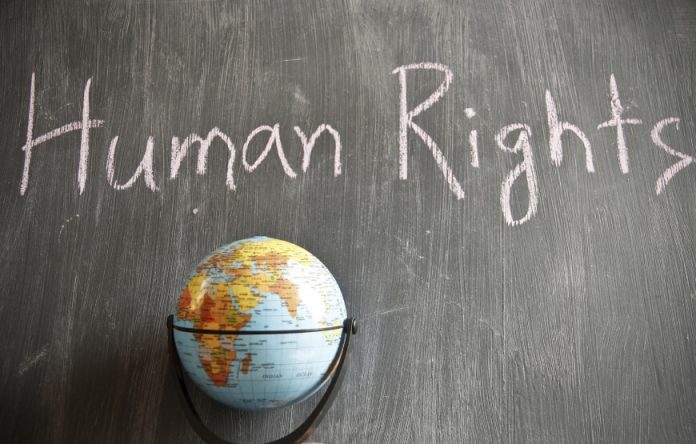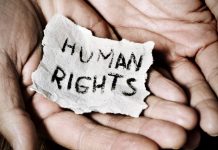This article is written by Monesh Mehndiratta, a law student at Graphic Era Hill University, Dehradun. This article explains human rights and its classification along with the scope of human rights in future.
It has been published by Rachit Garg.
Table of Contents
Introduction
The basic rights which are moral principles or norms set for standard human behaviour, protected by municipal or international law are called human rights. These are available to every human being irrespective of their age, caste, creed, gender, religion, race, origin or location. These are termed inalienable fundamental rights, inherent in by all human beings. They also impose an obligation on other human beings not to infringe on the human rights of any person. Also, according to John Locke’s theory of inalienable rights, individuals are born equal and with some basic natural rights which are inalienable and can never be taken away. These rights include right to life, liberty and property which is also recognized in fundamental rights guaranteed by a country to its citizens. The Universal Declaration of Human Rights (UDHR) deals with all the human rights made available to a person from birth. It is a milestone document defining every human right and was adopted by the UN General Assembly in 1948 containing 30 articles. These are universally protected by the United Nations Human Rights Council.
What are Human Rights
Human beings are described as rational beings and thus given certain basic rights since birth. These rights are inherent in all human beings as they become operative at the birth of a person. These rights govern the physical, moral, spiritual, and social welfare of a person. They are also known as fundamental rights, basic rights, inherent rights, natural rights, and birth rights.
Chief Justice of India, J.S. Verma rightly stated that “human dignity is the quintessence of human rights.” All rights which are essential for the protection and dignity of an individual and help him to develop his personality are termed human rights. (Maneka Gandhi v. Union of India, 1978) D.D. Basu defines human rights as the basic rights that every individual must have against the state or any other authority, irrespective of any consideration.
One of the achievements of contemporary international law is that it recognises human dignity and honour. This has also been reflected through various declarations and conventions adopted by the United Nations on human rights. The conventions have tried to protect the rights of individuals at a national level by incorporating provisions into the constitutions of the countries. Many non-governmental, regional, national and international level organisations work to bring cases of violation of human rights to light and try to prevent such occurrences.
Characteristics of Human rights
- Human rights are universal in nature which means that they are given to every individual irrespective of his/her caste, creed, race, religion, nationality and place of birth.
- These are inalienable rights. Many philosophers believe that these are natural rights given by God and cannot be taken away or changed by anyone.
- These are indivisible and interdependent rights. If a government gives one right then it has to protect the other rights of its citizens. For example, it is the duty of government to protect the right of fair hearing and provide food, shelter and clean environment to its citizens in order to protect the right to life of its citizens.
- They are inherent to each person and available since birth.
- They are not lost if the man is not familiar with his rights or if he does not use his rights. For example if a person is not aware of his right to consult the advocate then it does not mean that his right is finished. It is then the duty of authorities to provide him with free legal aid or tell him his rights.
- They protect the dignity and personality of humans. Rights like right to life, right to liberty, right against arbitrary arrest and punishment etc protect the dignity of a person.
Sources of Human Rights

International treaties
These are the most important sources of human rights. There are multiple treaties on human rights which are binding on the states who are party to such treaties. For example, the European Convention on Human Rights, the American Convention, the African Charter on Human Rights, and People’s Rights.
International customs
These rights have acquired the status of customary international law by their practice and, thus, are binding on all the states irrespective of their consent. Many of these rights are a part of customary international law and thus known as a source of human rights.
International instruments
There are several declarations, resolutions, and recommendations related to human rights that have been adopted by the United Nations as a source of such rights. Some of these are the Universal Declaration of Human Rights (1948), declarations adopted at the Tehran Conference (1968) and the Vienna Conference (1993).
Judicial decisions
The International Court of Justice serves as another important source of human rights by setting up precedents and decisions in various disputes and case laws relating to violations of human rights.
Official documents
Documents and journals like Human Rights Law Journal, Human Rights Review, European Law Review, and other collective official work under the United Nations serve as the source of human rights.
Classification of Human Rights
Human rights are inherent and interdependent on each other and so there are not many different kinds of human rights. All these rights are equally important and inherent in all human beings, irrespective of their age, sex, caste, creed, race, religion, location, or nationality. The Universal Declaration of Human Rights did not precisely categorise human rights but mentioned 2 kinds:
- Civil and political rights
- Economic, social, and cultural rights
Theoretical classification of human rights
- Civil and political rights
The rights that protect the life and personal liberty of a person are called civil rights. They are necessary to maintain the dignity of a person. These include rights like the right to life, liberty and security of a person, the right to privacy, the right to own property, freedom of thought, religion and movement.
Political rights are such rights that allow a person to participate in governmental activities. These include rights like the right to vote and the right to be elected. The nature of such rights is different, but they are interrelated to each other. Both these rights are covered in the International Covenant on Civil and Political Rights.
These rights are also called first-generation rights and are derived from 17th and 18th-century theories related to the American, English, and French Revolutions. These form a part of negative rights because the government abstains from doing such activities or forming policies that violate these rights. The following civil and political rights are recognised in the declaration of human rights by the United Nations:
- Right to life, personal liberty, and security (Article 3)
- Freedom from slavery (Article 4)
- The prohibition against torture and inhuman treatment (Article 5)
- Equality before the law and equal protection (Article 7)
- Remedy before national tribunals (Article 8)
- Freedom from arrest, which is arbitrary in nature (Article 9)
- Right to a fair trial and public hearing by an impartial tribunal (Article 10)
- Freedom from ex-post-facto laws (Article 11)
- Right to privacy (Article 12)
- Right to nationality (Article 15)
- Right to own property (Article 17)
- Right to freedom of religion and conscience (Article 18)
- Freedom of expression (Article 19)
- Freedom to conduct a peaceful assembly (Article 20)
- Take part in government activities (Article 21)
- Fundamental rights
Some human rights are guaranteed to the citizens of the state through constitutional provisions and cannot be infringed upon at any cost, even by the state authorities. These are termed as fundamental rights. The expression ‘fundamental rights’ is stated in declarations and constitutional provisions of many states. The Virginia Declaration of 1776 states that men are free and independent and have certain inherent rights. The French Declaration of Rights of Man and Citizen, 1789 provides that men are born free and have equal rights. The Indian Constitution guarantees six fundamental rights to the citizens of the country. These are:
- Right to Equality (Article14)
- Right to freedom (Article19-22)
- Right to religion (Article 25)
- Cultural and educational rights (Article 29–30)
- Right against exploitation (Article 23– 24)
- Right to constitutional remedies (Article 32)
3. Natural rights
The history of human rights is rooted in ancient times and the philosophical concepts of natural law and thus, also termed natural rights. Plato was one of the first writers to give a standard ethical code of conduct. Aristotle opined that rights change as per the different kinds of circumstances faced by society from time to time. Since human rights are universally applicable to every person in the world it is similar to natural rights. Natural rights have been derived from natural law which opines that law must reflect moral reasoning and must be related with morals imbibed in a person or set by the society. On the other hand, positivism states that human rights are a result of enactments of statutes and orders by law which comes with various sanctions attached to it.
4. Moral rights
Human rights that determine the spiritual and moral conduct of a person are termed moral rights. They are primarily contained in moral rights as they highlight various moral values that cannot be highlighted by any set of institutional rights. They promote moral values like respect for everyone, brotherhood, secularism, protection of life, peace in society, etc. Human rights also put moral obligations on the state and people not to violate and infringe on the rights of other people. If done so, it will be punished as per the provisions of the set statute.
5. Legal rights
The rights that are recognised by the legal system of a country are called legal rights. The two essential elements of these rights are:
- The holder of the right, and
- A person bound by duty.
Rights and duties are correlated to each other. A person cannot have a right without any corresponding duty. A person having a right also has a duty not to violate another person’s rights. Human rights are given to every individual irrespective of any considerations, and the state has the corresponding duty to protect the rights of its citizens. Article 2 of the Universal Declaration of Human Rights lays down that it is the primary duty of the state to promote, protect, and implement all human rights through various measures and legislative provisions. The government of any state should pass any such laws which infringe on the rights of the people.
6. Economic rights, cultural Rights and social rights
These rights are also called freedoms and guarantee a person the minimum necessities of life. These are also included in the International Covenant on Economic, Social and Cultural Rights. These form a part of positive rights as the state is required to frame policies and provisions to implement such rights. These rights are based on the concept of social equality and are second-generation rights. These rights include the right to work, social security, physical and mental health, and education. The various economic, cultural, and social rights recognised by the Universal Declaration of Human Rights are as follows:
- Right to social security (Article 22)
- Right to work and choice of employment (Article 23)
- Right to rest (Article 24)
- Right to standard living and health (Article 25)
- Right to education (Article 26)
- Freedom to participate in cultural life (Article 27)
- Right to social and international order (Article 28)
In addition to the above rights, there is yet another kind of right called collective rights. These rights are enjoyed by individuals collectively and include the right to self-determination, physical protection of the group, and the prohibition of genocide.
Future of Human Rights
The roots to protect human rights can be traced back to the period of Babylonian laws as the king issued a certain set of ethical codes of conduct for its people called Hammurabi’s code. It included fair wages, protection of property, and charges to be proved during the trial for the person to be punished. Other such examples are Assyrian laws, Hittite laws, and Dharma of the Vedic period. Many philosophers recognise human rights as natural rights. Some of these are Plato, Aristotle, Cicero, etc. While Plato was the first to write a universal standard of conduct, Cicero, on the other hand, believed that these rights must be made customary and civil. With these, there was the implementation of human rights in various countries.
Greece gave its citizens freedom of speech, equality before the law, the right to vote and get elected and the right to trade. The Magna Carta of Great Britain was also implemented as a response to heavy taxes imposed on people in the country. It is also famous for introducing jury trials and their concept to the world. Like this, every country guaranteed to its citizens a certain set of fundamental rights through the constitution or legislative provisions.
With the advancement of technology, climate change, and developments in science, can we say these rights are enough to protect the life and liberty of individuals? These rights, though provided through legislative provisions along with an obligation on the state not to infringe upon such rights, are at times violated by various actions and steps of the authorities. Various punishments to the accused like death, torture in prison, harassment, use of third degree and scientific methods while investigation are a threat to his/her right to life and are debtable issues. The privacy of a person is violated by misuse of social media which also helps a person to intrude into one’s personal life through various means. Similarly, many other freedoms are violated by discrimination against people belonging to other nationality in a country.
Some of the human rights are not directly guaranteed in the constitution of a state as a fundamental but indirectly under the ambit of a particular right. For example, the right to privacy in the Indian Constitution is not a fundamental right purely but falls under the ambit of the right to life and personal liberty under Article 21. This is the reason that it is not taken seriously by the people and state and thus, is violated easily. Society is dynamic and, thus, demands change. With the change in society, there’s a need to change and refine human rights. Nowadays, there’s a need to include the right to the internet in human rights as it has become a part of everybody’s life. This right has also been recognized by the Indian Judiciary in the case of Anuradha Bhasin v. Union of India (2020). With the acceptance of the LGBTQ community in society, the focus should be made to recognise their rights with all seriousness to protect them from harassment and torture. All this shows that there is a way ahead and human rights need to be refined to meet the demands and needs of people in present society.
Conclusion
Human rights lay down the basis for fundamental rights which are guaranteed to the citizens of every country. These are the basic rights a person has from his birth till his death and are indivisible, universal and interdependent rights. These are mainly provided by the Universal Declaration of Human Rights, adopted by the United Nations. Every country has a commission to protect the human rights of its citizens along with fundamental rights under the constitution. For example, in India, the National Human Rights Commission (NHRC) at the national level and the State Human Rights Commission (SHRC) at the state level work to protect human rights and take on any dispute related to its infringement. However, with the advancement in technology and science, there’s a need to revise and refine these rights in order to meet the changes.
Frequently asked questions (FAQs)
What are human rights and where are they provided?
Human rights are defined as the minimum rights that every individual must have against the state or any other authority, irrespective of any consideration. These are provided in the Universal Declaration of Human Rights, adopted by the United Nations in 1948 and contain 30 articles.
How many types of human rights are provided in the UDHR?
The Universal Declaration of Human Rights did not precisely categorise human rights but mentioned 2 kinds:
- Civil and political rights
- Economic, social, and cultural rights
Human rights are inherent and interdependent on each other and so there are not many different kinds of human rights. All these rights are equally important and inherent in all human beings, irrespective of their age, sex, caste, creed, race, religion, location or nationality.
What are the characteristics of human rights?
The characteristics of human rights are:
- Universal in nature.
- Inalienable rights.
- These are indivisible and interdependent rights.
- They are inherent to each person and available since birth.
- They are not lost if the man is not familiar with his rights or if he does not use his rights.
- They protect the dignity and personality of humans.
References
- https://www.humanrightscareers.com/issues/what-kinds-of-human-rights-exist/#:~:text=The%20UDHR%20and%20other%20documents,and%20the%20right%20to%20education.
- https://www.humanrights.is/en/human-rights-education-project/human-rights-concepts-ideas-and-fora/part-i-the-concept-of-human-rights/definitions-and-classifications
- https://www.srdlawnotes.com/2017/08/classification-of-human-rights.html
- https://www.jagranjosh.com/general-knowledge/human-rights-and-its-types-1627655262-1
Students of Lawsikho courses regularly produce writing assignments and work on practical exercises as a part of their coursework and develop themselves in real-life practical skills.
LawSikho has created a telegram group for exchanging legal knowledge, referrals, and various opportunities. You can click on this link and join:
Follow us on Instagram and subscribe to our YouTube channel for more amazing legal content.
 Serato DJ Crack 2025Serato DJ PRO Crack
Serato DJ Crack 2025Serato DJ PRO Crack










 Allow notifications
Allow notifications


